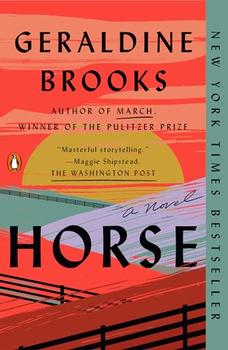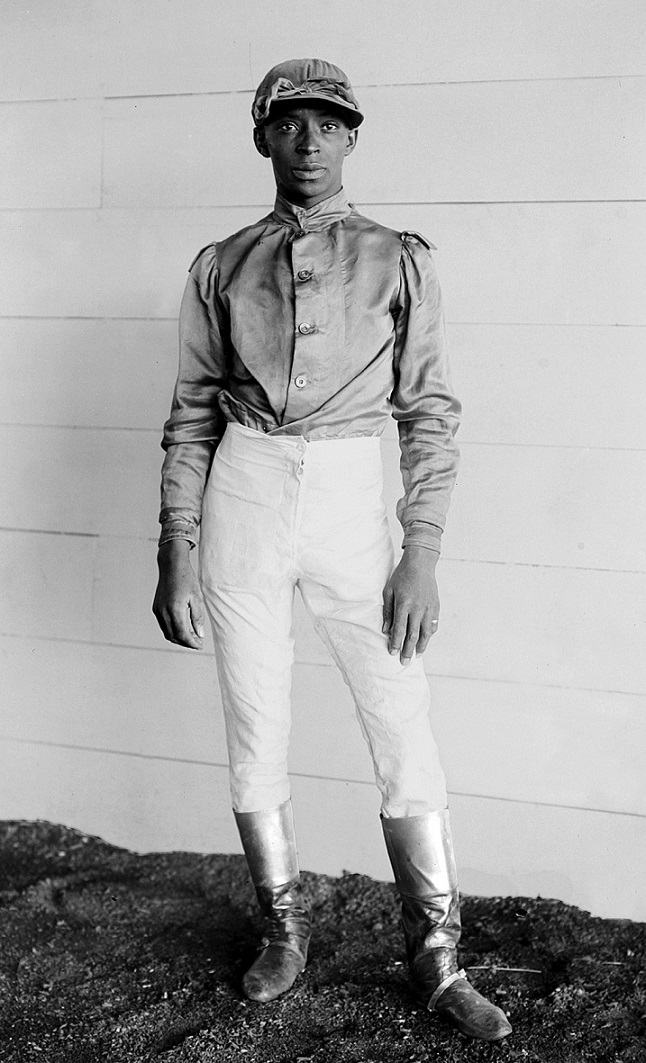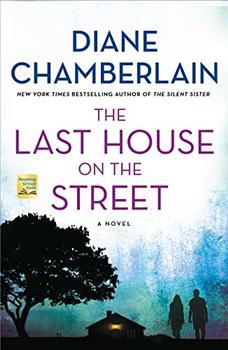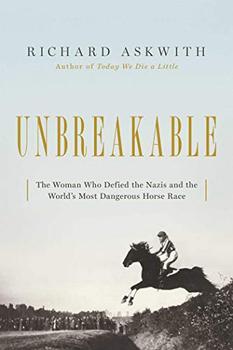Summary | Excerpt | Reading Guide | Reviews | Beyond the book | Read-Alikes | Genres & Themes | Author Bio

A Novel
by Geraldine BrooksWinner of the 2022 BookBrowse Fiction Award
A discarded painting in a junk pile, a skeleton in an attic, and the greatest racehorse in American history: from these strands, a Pulitzer Prize winner braids a sweeping story of spirit, obsession, and injustice across American history.
Kentucky, 1850. An enslaved groom named Jarret and a bay foal forge a bond of understanding that will carry the horse to record-setting victories across the South. When the nation erupts in civil war, an itinerant young artist who has made his name on paintings of the racehorse takes up arms for the Union. On a perilous night, he reunites with the stallion and his groom, very far from the glamor of any racetrack.
New York City, 1954. Martha Jackson, a gallery owner celebrated for taking risks on edgy contemporary painters, becomes obsessed with a nineteenth-century equestrian oil painting of mysterious provenance.
Washington, DC, 2019. Jess, a Smithsonian scientist from Australia, and Theo, a Nigerian-American art historian, find themselves unexpectedly connected through their shared interest in the horse—one studying the stallion's bones for clues to his power and endurance, the other uncovering the lost history of the unsung Black horsemen who were critical to his racing success.
Based on the remarkable true story of the record-breaking thoroughbred Lexington, Horse is a novel of art and science, love and obsession, and our unfinished reckoning with racism.
Geraldine Brooks creates a powerful backstory for 19th-century thoroughbred racehorse Lexington, weaving a rich tapestry of historical and current-day narratives that aptly reflect how the legacy of slavery still ripples through America. The historic underpinnings of the work are as spellbinding as the characters. Whether Brooks is chronicling the history of thoroughbred racing, exploring the impact of the Civil War on African American jockeys, or detailing the nuances of American equestrian art, it is all equally engrossing...continued
Full Review
(557 words)
This review is available to non-members for a limited time. For full access,
become a member today.
(Reviewed by Jane McCormack).
 On its face, the end of the Civil War should have marked a time in which African Americans would be afforded freedom. But the end of slavery did not mean the end of Black oppression. Many white Americans built their fortunes on, and were heavily entrenched in, slavery's infrastructure. These individuals, as well as others, bore great resentment for freed slaves, viewing them as a direct threat to their livelihoods. Rather than reveling in newfound freedom, many Black Americans faced hostility and bitterness, including those in the thoroughbred racing industry. Black jockeys and trainers who once found success in their fields now found a target on their backs.
On its face, the end of the Civil War should have marked a time in which African Americans would be afforded freedom. But the end of slavery did not mean the end of Black oppression. Many white Americans built their fortunes on, and were heavily entrenched in, slavery's infrastructure. These individuals, as well as others, bore great resentment for freed slaves, viewing them as a direct threat to their livelihoods. Rather than reveling in newfound freedom, many Black Americans faced hostility and bitterness, including those in the thoroughbred racing industry. Black jockeys and trainers who once found success in their fields now found a target on their backs.
As Geraldine Brooks notes in the Afterword of Horse, the "thriving" horse ...
This "beyond the book" feature is available to non-members for a limited time. Join today for full access.

If you liked Horse, try these:

by Diane Chamberlain
Published 2023
A community's past sins rise to the surface in New York Times bestselling author Diane Chamberlain's The Last House on the Street when two women, a generation apart, find themselves bound by tragedy and an unsolved, decades-old mystery.

by Richard Askwith
Published 2021
The courageous and heartbreaking story of a Czech countess who defied the Nazis in a legendary horse race.